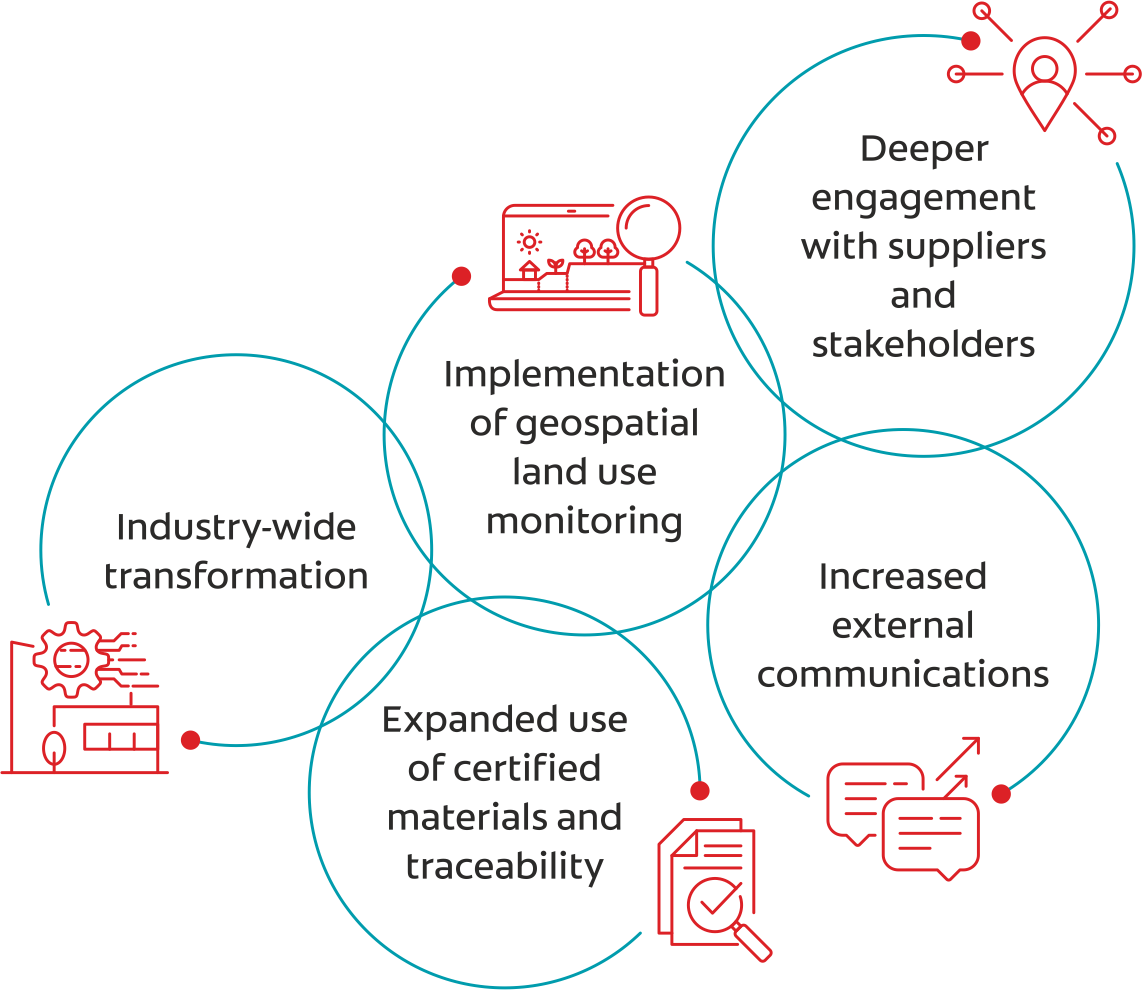Statutory Section
Driving sustainable sourcing is one of the key actions articulated in our 2025 Sustainability & Social Impact Strategy. We are committed to driving sustainable sourcing, including making our products with responsibly sourced ingredients and improving the sustainability profile of our products.

And to ensure that what we manufacture is good for the consumer, and good for the community and environment, while it continues to be good for business. This requires that we have high expectations for our suppliers and establish robust and collaborative partnerships with them. The topics where we engage our suppliers include labor practices and universal human rights, protecting the environment, health and safety, and ethical dealings.

We strategically organize our approach to prioritize sustainable sourcing, ensuring alignment with our values. We optimize responsible sourcing through enhanced supplier management.
Streamlining logistics and employing efficient transport methods reduce our environmental footprint. These efforts not only help us outperform competitors but also set new industry benchmarks, driving a positive change.

For sourcing to be sustainable in the long term, it needs to be responsible. It is thus the first step in our supply chain management.
With responsible sourcing, our goals are to:
To minimize our environmental impact and lead times, we prioritize sourcing from local suppliers wherever possible. 75% of our direct suppliers are local. Supporting them promotes job creation and strengthens the local economy, leading to a positive social impact.
We have collaborated with over 2,200 suppliers for raw materials, packaging materials, logistic support, marketing, and a multitude of other offerings.
We also ensure that our suppliers adhere to rigorous ethical standards, including no child labor. Through comprehensive supplier vetting processes and ongoing monitoring, we verify that all partners uphold the highest ethical principles.
No instances of child labor or forced labor, and no violations of collective bargaining agreements were reported in FY 2023-24. Additionally, no environmental or social impacts have been identified.


We have a formal process to identify and manage social, ethical, and environmental risks in our supply chain and with other business partners. Our efforts to protect the environment through our sourcing practices are focused on key forest risk commodities, including palm oil, soy-based products, pulp and paper packaging. The sourcing of all these commodities is covered by the Group-level policies created by our parent company, Colgate- Palmolive Company.
The SRSA program requires selected suppliers and business partners to complete a self-assessment focused on labor practices, human rights, worker health and safety, environmental management, and business integrity. Using a supplier risk assessment scorecard, selected suppliers and business partners are scored against critical risk factors to determine the need to conduct a social compliance audit. When a supplier is assessed as a high risk, a third-party audit of their facility is required.
Our endeavor to responsibly source palm oil is guided by the Policy on Responsible and Sustainable Sourcing of Palm Oil. This Policy outlines our commitments and expectations for our palm oil suppliers and includes the following elements:
Our efforts are guided by the pulp and paper packaging section of our No Deforestation Policy which outlines our expectations for how we source these materials. The guiding principles that underpin our approach include:
